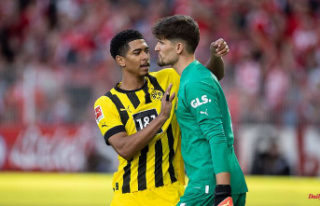In the western Baltic Sea, it is practically no longer allowed to catch cod and herring is only very limited. For the fishermen, the EU decision was almost a deathblow. But the stocks have collapsed in parts. For the foreseeable future, nothing is likely to change in the fishing practice.
German fishermen in the Baltic Sea are likely to face another year of grace. When the EU ministers responsible for fisheries meet later in the day, a decision will probably also be made on cod and herring stocks that are particularly important for German fishermen. Permission to catch significantly more is not expected.
Since this year, cod can no longer be specifically caught in the western Baltic Sea and herring can only be caught with cutters under twelve meters in length and so-called passive fishing gear, such as gillnets. The ministers agreed on this last year.
In 2021, 1,600 tonnes of western herring and 4,000 tonnes of western cod were still allowed to be caught in the Baltic Sea across the EU. The background to the new rules were worrying developments in many fish stocks. According to conservationists, not only the fishing itself has contributed to this - crises such as climate change also have negative effects.
Environmentalists have repeatedly criticized excessive catches and warned of overfishing and significant damage to the ecosystem. The EU negotiations on catches have traditionally been difficult, often dragging on for hours into the night and sometimes into the next day. However, EU circles said at the end of the week that a lot of work had already been done at lower levels. "I hope this will help us find a sensible political deal," a senior EU diplomat said ahead of the meeting.
Every year, the EU countries determine the total allowable catches for certain waters. On this basis, the respective national catches are allocated to the individual countries using fixed distribution keys. The negotiations are based on a proposal from the EU Commission, which is primarily based on scientific recommendations.
In addition to the catches for the Baltic Sea, the ministers also want to talk about the agricultural situation in Ukraine. It is expected that the focus will also be on the sharp increase in fuel prices and the availability of fertilizers. Food is becoming scarcer in many parts of the world. Poorer countries in Africa and Asia, for example, suffer from this in particular. With the Russian war of aggression against the Ukraine, the price of wheat, among other things, had skyrocketed at times, since the Ukraine - an important grain producing country - was no longer able to export its goods properly for a long time.












